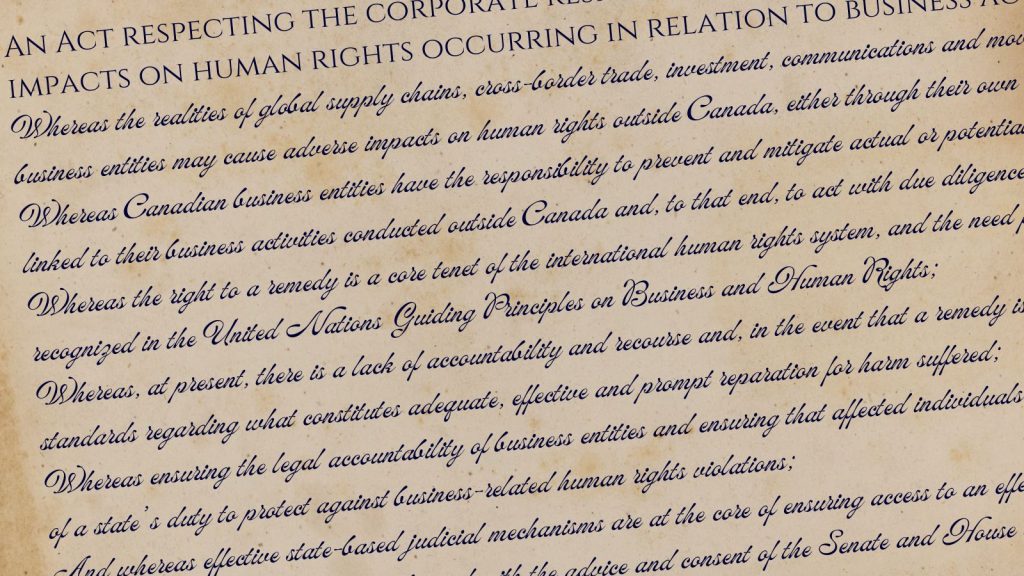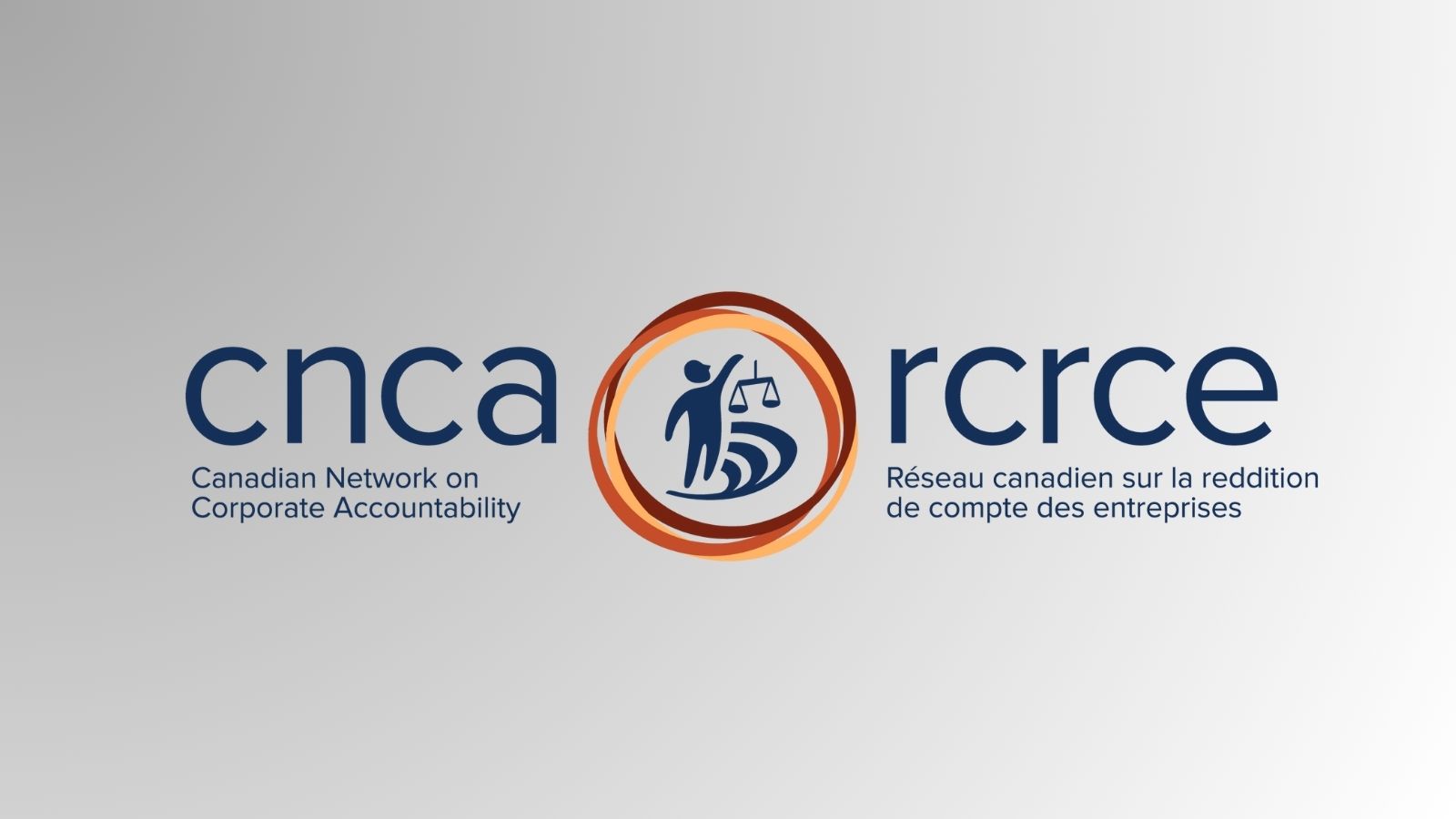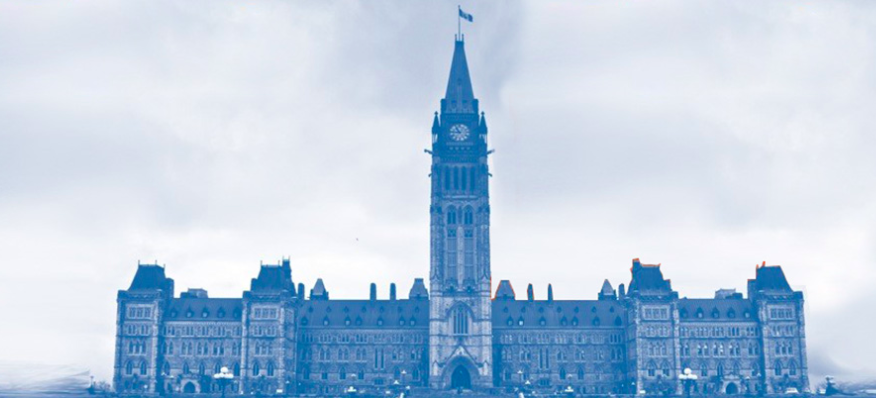The CNCA’s draft model mandatory human rights and environmental due diligence law
May 2021
Introduction
For over a decade, Canadian companies have been expected to respect human rights throughout their global operations. [2] The model human rights and environmental due diligence legislation developed by the Canadian Network on Corporate Accountability (CNCA) would make that expectation an enforceable requirement.
The purpose of the model legislation is to prevent, address, and remedy adverse human rights impacts connected to the overseas business activities of Canadian-linked companies. The law would create an obligation on companies to prevent harm and to implement human rights due diligence procedures. It also provides for liability – and access to remedy – if a company fails to fulfill those obligations.
Such a law is urgently needed in Canada. Far too often, companies are failing to deliver on their responsibility to respect human rights.
Ten years after the unanimous endorsement of the United Nations Guiding Principles on Business and Human Rights (UNGPs), there continue to be widespread reports of serious human rights abuses and environmental damage linked to the overseas activities of Canadian companies and supply chains. Communities and workers who suffer harm are often unable to access justice and remedy. Human rights and environmental defenders who stand up to powerful corporations frequently face violence, intimidation or criminalization. The risks and vulnerabilities they face have worsened with the global COVID-19 health crisis.
At present, companies can avoid fulfilling their responsibility to respect human rights because binding rules don’t exist, aren’t enforced, or because companies structure their global operations to avoid liability. [3] This legislation would change that.
Canada’s failure to regulate and ensure access to remedy for harms associated with Canadian business activity overseas is inconsistent with Canada’s international human rights Obligations. [4]
The Corporate Respect for Human Rights and the Environment Abroad Act would help respond to all three pillars of the United Nations Protect, Respect and Remedy Framework. [5]
Further, this legislation would help Canada catch up to growing international momentum towards comprehensive human rights due diligence laws. This momentum stems from the recognition by other advanced economies that voluntary measures alone are inadequate, and that meaningful measures to address corporate malfeasance are essential for long term prosperity and sustainability.
Several European jurisdictions have passed, or are considering, comprehensive human rights due diligence legislation – most notably France’s 2017 Devoir de vigilance legislation, and the 2021 resolution of the European Commission outlining its forthcoming human rights due diligence legislation. [6]
The time has come for Canada to establish enforceable rules through legislation. This Act provides the government with a blueprint with which to do so, through three pillars:
- establishing a corporate duty to prevent and to avoid adverse human rights impacts;
- establishing a corporate duty to develop, implement and report on adequate human rights and environmental due diligence procedures; and
- ensuring access to remedy and enforcement of HREDD obligations.
Following is a summary of each of these pillars.
Pillar 1: Establishing a corporate duty to prevent and to avoid adverse human rights impacts
The Corporate Respect for Human Rights and the Environment Abroad Act (Corporate Respect for Human Rights Act) would establish a corporate duty to prevent adverse human rights impacts and environmental damage outside Canada, throughout their business relationships.
EXTRACT FROM THE MODEL LEGISLATION
Duties to Avoid, Prevent and Address [7]
Every entity has a duty to: (1) 1. Avoid causing adverse human rights impacts outside Canada through its own activities, and through the activities of its affiliates; and to address such impacts when they occur; AND 2. Prevent adverse human rights impacts outside Canada that are directly linked to its operations, products or services by its business relationships; and to address such impacts when they occur. (2) Where an entity contravenes (the above section), it is liable for any injury that results from its contravention, whether it be caused by its own act or omis- sion or that of its affiliate or a person with whom it has a business relationship.
As a result, companies would be required to ensure they themselves – along with their affiliates (e.g. controlled subsidiaries) [8] – avoid causing adverse human rights impacts in their overseas operations. In addition, companies would be required to take steps to prevent adverse human rights impacts caused or contributed to by their business relationships (e.g. their subcontractors or suppliers). They would be required to address any impacts they failed to avoid or prevent.
In other words, a company would need to proactively ensure it is neither encouraging human rights abuse or environmental damage in its supply chains, nor turning a blind eye to negligent or harmful practices of its business relationships. Companies would no longer be able to avoid their responsibility to respect human rights by outsourcing, operating through subsidiaries or by remaining willfully blind to the human rights impacts of their supply chains.
What companies would the law apply to?
The Corporate Respect for Human Rights Act would apply to 1) companies domiciled in Canada; and 2) companies that sell goods or services in Canada if they also have a physical connection to Canada. [9]
The UNGPs make clear that companies of all sizes and from all sectors have a responsibility to respect human rights. [10] The Act does not have a size threshold. Instead, it provides that regulations may exempt certain companies (based on revenue, number of employees or sector) from the application of the Act and/or the obligation to report annually. This approach, which relies on sector-specific size thresholds rather than a single size threshold, recognizes the particularities of the Canadian economy (e.g. predominance in the global extractives sector, junior mining exploration companies often being small in size yet with potential to cause serious adverse human rights impacts) while also recognizing that it would be reasonable to exempt small businesses from some low-risk sectors from all or part of the law’s application.
What rights would be protected?
Human rights are interrelated, interdependent and indivisible. [11] For example, it is impossible to effectively prevent forced labour without also protecting other human rights, such as the right to non-discrimination or to organize collectively. The violation of one right often contributes to the violation of another.
As a result, the Corporate Respect for Human Rights Act is not limited in scope to a specific human right. The Act articulates companies’ responsibility to respect all human rights. Human rights are defined in the Act by reference to internationally-recognized human rights instruments. These include the nine core international human rights treaties, the eight core international labour conventions and the United Nations Declaration on the Rights of Indigenous Peoples. [12] The Act makes specific reference to the human right to a healthy, safe and sustainable environment.
Pillar 2: Establishing a corporate duty to develop, implement and report on adequate human rights and environmental due diligence procedures
The purpose of human rights due diligence is to prevent and avoid adverse human rights impacts. The Corporate Respect for Human Rights Act would require companies to develop and implement adequate human rights due diligence procedures, consult with rights-holders in the development and implementation of these procedures, and report annually. Companies would need to develop and implement due diligence procedures with respect to their own activities, as well as with respect to their affiliates and business relationships. [13]
WHAT IS CORPORATE HUMAN RIGHTS DUE DILIGENCE?
The Office of the United Nations High Commission on Human Rights describes human rights due diligence as “a way for enterprises to proactively manage potential and actual adverse human rights impacts with which they are involved… The prevention of adverse impacts on people is the main purpose of human rights due diligence. It concerns risks to people, not risks to business. It should be ongoing, as the risks to human rights may change over time; and be informed by meaningful stakeholder engagement, in particular with affected stakeholders, human rights defenders, trade unions and grassroots organizations. Risks to human rights defenders and other critical voices need to be considered.” (emphasis added) [14]
The Act enumerates the minimum due diligence procedures that a company is required to undertake while also making reference to the extensive due diligence guidance that has been developed to assist companies in fulfilling their responsibilities. [15] The Act provides that further direction may be articulated through regulations – such as with respect to auditing procedures; applicable standards applying to specific sectors, or to entities of particular sizes. The Act provides that regulations will be subject to committee review in both Houses of Parliament.
EXTRACT FROM THE MODEL LEGISLATION
Due diligence procedures shall include:
-
Identifying and assessing real and potential adverse impacts;
-
Ceasing and remedying existing adverse impacts;
-
Mitigating risks of adverse impacts;
-
Monitoring the implementation and effectiveness of the measures adopted to address adverse human rights impacts;
-
A mechanism to provide an alert to the entity of possible adverse effects on or risks to human rights;
-
Documenting due diligence efforts.
Pillar 3: Ensuring access to remedy and enforcement of HREDD obligations
The legislation would establish meaningful consequences for failure to prevent serious human rights impacts and failure to undertake adequate due diligence. It would also assist impacted communities and workers to access effective remedy in Canadian courts. It does this through two mechanisms:
- civil liability for harms and/or, failure to do due diligence, and
- a commissioner empowered to enforce the production of due diligence reports.
If a company, its subsidiary, subcontractor or supplier causes a serious adverse human rights impact, the company could be sued in a Canadian court. The court could order an injunction, payment for damages/losses, punitive damages, rehabilitation or specific performance, legal costs, or a combination thereof. Impacted communities could file a motion for the company to be ineligible for future government supports, or for existing supports to be withdrawn. [16]
EXTRACT FROM THE MODEL LEGISLATION
Failure to Avoid, Prevent and Address Adverse Human Rights Impacts
Any person who has suffered loss or damage as a result of conduct that contravenes any provision of this Act or the regulations may, in any court of competent jurisdiction, bring an action for relief.
Defence: A company could seek to avoid a court order by establishing they have developed and implemented effective due diligence procedures to prevent harm. The Act sets out factors for the court to consider in making this determination. [17] These factors would incentivize companies to undertake effective due diligence procedures.
Additionally, the legislation provides that interested parties – such as civil society organizations – could file suit against a company in Canadian court if the company failed to develop and implement adequate due diligence procedures.
Finally, the legislation contemplates the creation of a commissioner role to enforce the publication of annual reports. The Commissioner would maintain a website where these “human rights risks” reports would be published.
The Commissioner would ensure that the reports include content relating to all of the required business relationships and under all of the required headings. [18] Companies who failed to publish comprehensive reports could be fined up to $250,000. Interested parties would be able to submit commentary to these company reports and request the commentary be published on the Commissioner website.
How civil liability helps prevent harm and ensure access to remedy
Risk management is an important business practice taken very seriously by corporate management, governance bodies and investors. When anti-bribery and corruption legislation began to be introduced around the world, many corporations moved to significantly more robust corruption risk identification and mitigation strategies. In the same way, establishing civil liability in Canada for human and environmental harms primarily acts as a concrete incentive for a business to internalize its responsibility to prevent harm, and to put adequate procedures in place. The expected response to this legislation is that companies will enhance their attention to such risks of harm, and change their behaviour without communities needing to regularly seek recourse in Canadian courts.
When companies are aware that they could be held liable, management, boards and investors are incentivized to pay attention to such risks, and to ensure steps are taken to prevent adverse human rights impacts. The requirement to consult with rights-holders on an ongoing basis means that significant risks are more likely to be identified, and companies alerted early if the mitigation measures are not adequate. The provision in the legislation that can defend against liability by demonstrating adequate due diligence, enhances the incentive to ensure such diligence is undertaken.
All of these factors help ensure that communities and workers aren’t harmed in the first place. They would also help ensure access to remedy if harm does occur. Remedying adverse impacts is part of the legislation’s outlined due diligence procedures. If companies fail to offer remedy on their own, they can be ordered to do so by the court.
Endnotes for the Executive Summary
- The draft model legislation is the product of extensive research and engagement, within and outside of Canada. It provides a blueprint for the Government of Canada. The draft text may be updated to reflect ever-evolving international best practices. We wish to thank all those who offered their time, advice, and expertise – in particular the members of the expert advisory group and legislative drafting team.
- See, for example, Canada’s Corporate Social Responsibility Strategy at https://www.international.gc.ca/trade-agreements-accords-commerciaux/topics-domaines/other-autre/csr-strat-rse.aspx?lang=eng
- This can be done by outsourcing production, using complex supply chains and subsidiaries, or turning a blind eye to the human rights practices of their business relationships. Worse still, some companies use their influence to ensure that laws that would protect human rights and the environment are not passed, are watered down, or are not enforced. No Canadian legislation currently articulates a company’s obligation to avoid, address and prevent human rights abuse. Furthermore, barriers continue to exist for foreign plaintiffs seeking to access Canadian courts.
- This has attracted the attention of several United Nations International Treaty Monitoring Bodies. See for example https://cnca-rcrce.ca/2017/01/31/international-human-rights-authorities-call-for-extractive-sector-ombudsperson/
- These include the state duty to protect against human rights violations (including by non-state actors such as Canadian companies); the corporate responsibility to respect human rights (and the role of human rights due diligence in fulfilling that responsibility) and the right of impacted people to have effective access to remedy.
- See the European Coalition on Corporate Justice’s Comparative table: Corporate due diligence laws and legislative proposals in Europe available at: https://corporatejustice.org/publications/comparative-table-due-diligence-proposals-europe/.
- The UNGPs make a distinction between a company’s responsibility to avoid versus its responsibility to prevent adverse human rights impacts. This is set out in Pillar 2, at Principle 13: The responsibility to respect human rights requires that business enterprises: Avoid causing or contributing to adverse human rights impacts through their own activities, and address such impacts when they occur; Seek to prevent or mitigate adverse human rights impacts that are directly linked to their operations, products or services by their business relationships, even if they have not contributed to those impacts. This distinction is maintained in the Corporate Respect for Human Rights Act.
- See the definition section of the model legislation – Part 2, sections 2 and 3 – for more on the definitions of affiliates, subsidiaries, and control.
- This is set out in Part V, section 1, of the model legislation: “Entities: (1) An entity is subject to this Act if the entity: i. Is domiciled or ordinarily resident in Canada; or ii. Sells goods or services in Canada and the entity has a resident agent, representative, warehouse, office or place where it carries on its business in any jurisdiction in Canada; AND The entity is not exempted from application of this Act by the regulations.
- Internationally recognized guidelines, including the United Nations Guiding Principles on Business and Human Rights (UNGPs) and the OECD Due Diligence Guidance for Responsible Business Conduct (OECD Guidance for RBC) clearly stipulate that such laws should apply to all companies, regardless of size, sector, or where the company operates.
- This is clearly stipulated in the UN Declaration of Human Rights and in the UNGPs.
- The complete list is at Part IV section 8 of the model legislation.
- The model legislation, at the definitions section 2 (3) sets out that “business relationship” includes an entity’s relationships with business partners, entities throughout its value or supply chain, and any other non-State or State entity directly linked to its business operations, products or services. For greater clarity, and without limiting the generality of the foregoing, relationships with state and non-state security forces, and home-based workers are “business relationships” for purposes of this Act.”
- See their website for more: https://www.ohchr.org/EN/Issues/Business/Pages/CorporateHRDueDiligence.aspx
- For example, from the United Nations and the OECD Guidelines for MNEs. Further, Canada’s National Contact Point for the OECD Guidelines, Global Affairs Canada’s Responsible Business Conduct Unit and the Canadian Ombudsperson for Responsible Enterprise are all tasked with supporting and advising companies regarding this guidance.
- Section 27 outlines that this could include “eligibility for support, subsidy, promotion or protection by any or all government agencies or departments” and it provides that the court could order the withdrawal of support or disallowance of future support for a stipulated period, or until specified conditions are met
- In determining whether an entity exercised effective due diligence the court may consider the extent of adherence to relevant standards of conduct (set in regulations or outlined in the entity’s public communications); whether the impact was or should have been identified as a risk in due diligence procedures, adequacy of steps taken (having regard to company’s size), history of adverse impacts (and any subsequent due diligence procedure improvements), any incentives the company created for improving human rights standards in its supply chains. See section 25 for more.
- Investigatory powers pursuant to the Inquiries Act would be required to fulfill this aspect of the Commissioner’s mandate.





